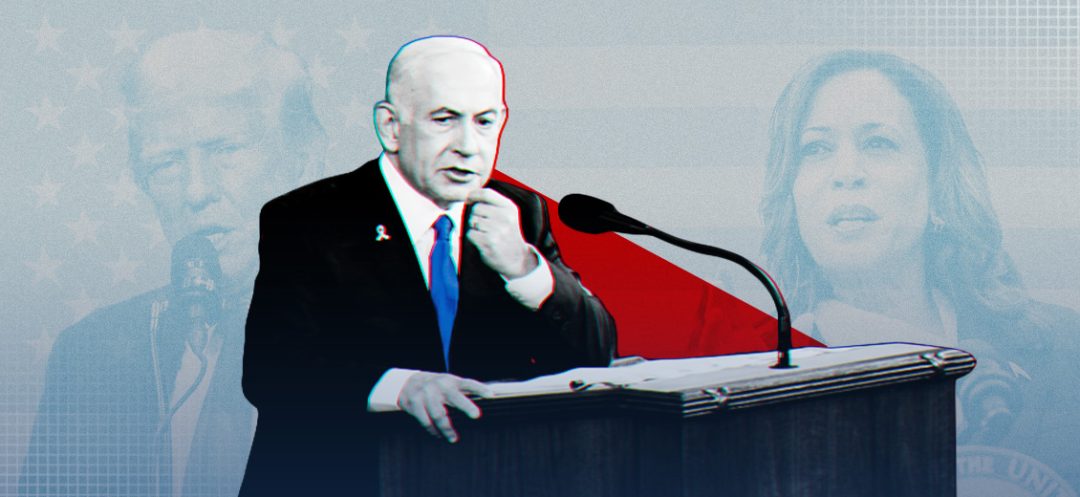Listen to the article
Benjamin Netanyahu had not yet finished his official meetings in Washington when the situation escalated on the Lebanon front due to a “stray” shell hitting a playground in Majdal Shams in the occupied Golan Heights, resulting in the deaths of some 12 children.
International efforts intensified to contain the situation and prevent the southern front from escalating into a full-fledged war, now that Israel has confirmed that it will retaliate. In anticipation, Hezbollah redeployed its forces in east and south Lebanon and placed them on high alert.
Netanyahu’s visit to Washington yielded disappointing results, as he refused President Joe Biden’s ceasefire proposal for Gaza, according to available information. The expectation was that accepting the proposal might boost Democratic candidate Kamala Harris’s presidential prospects. Instead, it seems Netanyahu will receive support to continue the “war on terror” after rejecting Biden’s suggestion, aligning instead with Republican candidate Donald Trump. This comes after Harris and numerous Democratic MPs boycotted the joint session of Congress during Netanyahu’s speech.
Netanyahu sought to polish his image by framing the visit as part of the “war on Iranian terrorism.” In his address to the Congress, he stressed the need to “stand together for victory,” claiming that the October 7 events were 20 times more horrific than those of September 11 and would not be repeated.
As soon as Netanyahu finished his speech, amid boycotts by Democratic MPs and protests outside, reactions quickly followed from “within the household.” The responses were strong and harsh, with opposition figures condemning his speech as “disgraceful,” criticizing him for speaking at length without addressing a deal for the return of hostages. The finance minister, however, was the only one to praise the visit, noting it underscored the strong partnership between Israel and the United States. In contrast, Hamas responded with fury, stating that Netanyahu “should have been detained rather than allowed to polish his image for public opinion.”
“Netanyahu skillfully positioned himself by drawing the US into confronting Iranian terrorism and advocating for an international coalition and increased military aid for Israel to achieve victory,” according to well-informed sources. Moreover, the visit did not resolve the divergence of viewpoints among the conflicting parties regarding the truce, due to ambiguity surrounding the US presidential battle results. Netanyahu left, having effectively resisted the Biden administration’s pressure for a Gaza ceasefire. Consequently, tensions, confrontations and escalation will persist on the fronts, as much as necessary, but actions will be restrained to avoid a full-scale war in the region, particularly on the sensitive Lebanon front. All parties are observing red lines while awaiting a resolution and comprehensive settlement in the region, which will only be possible with the new US administration.
According to Western diplomatic circles, Netanyahu skillfully balanced his positions between presidential candidates Donald Trump and Kamala Harris during his visit. He deliberately avoided aligning with either side to maintain neutrality and preserve relations with both, despite Harris and some Democratic MPs boycotting the congressional session. What’s noteworthy for observing circles, is that “Netanyahu portrayed himself and Israel as victims of the terrorism of the Iranian axis and its regional proxies, but offered no solutions or proposals for getting out of the crisis. Therefore, he avoided mentioning the two-state solution or recognizing an independent Palestinian State in accordance with international resolutions, instead emphasizing Jerusalem as the undivided, eternal capital of Israel. He also secured a Knesset decision against a Palestinian State on Israel’s borders just before the visit. Furthermore, Netanyahu imposed conditions for a truce, including the establishment of a Palestinian administration against violence and not opposing Israel—a condition rejected by Hamas. Consequently, the truce negotiations that were supposed to take place on Thursday last week were postponed to a later date.
Despite all these facts, Netanyahu maintained his role as a key military player in the region, though he does not have full freedom of action. He must comply with Washington’s restrictions designed to prevent the outbreak of war in the region, while awaiting the results of the November US presidential elections. Trump has centered his campaign on ending wars and achieving global peace, while Harris has focused on “freedom” as her main theme.
Conversely, and according to Western diplomatic sources, Iran is seeking a solution with the current Biden administration due to concerns about a potential Trump presidency. As a result, covert meetings among American and Iranian security officials are being held in Iraq, Oman, and Doha. These discussions are aimed at reaching a regional settlement, which has yet to be fine-tuned as it depends largely on the outcome of the US elections.





